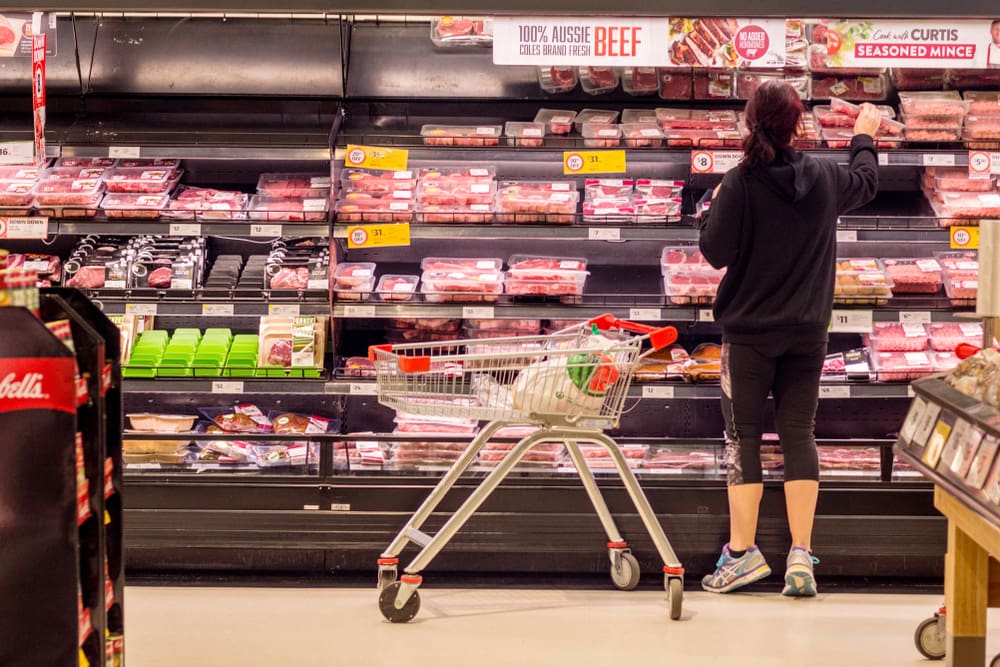A SENATE inquiry scrutinising the impact of market concentration on food prices and the pattern of pricing strategies employed by supermarkets has been mostly welcomed by industry groups, with some calling for it go further.
The Greens are spearheading the inquiry that will look into nine different terms of reference, ranging from profits to pricing structures and protecting suppliers. (full terms of reference at the bottom of this article)
In announcing the inquiry, Greens senator Nick McKim singled out the two biggest supermarkets, Coles and Woolworths, saying they are “making billions in profits by price gouging in a cost-of-living crisis.”
Beef Central understands the inquiry will also look into the other supermarket chains.
Ag groups calling for transparency
Cattle Australia chief executive officer Dr Chris Parker said the industry welcomed the inquiry and hoped it resulted in more transparency from supply chains.
“We definitely need an inquiry to look into what the costs of producing meat are and give transparency to all players in the supply chain,” Mr Parker said.
“I think it is important to ensure the whole supply chain has confidence in what consumers are being charged. We know a lot about the price of livestock, but we don’t know much about the costs further down the supply chain.”
Mr Parker also welcomed the prospect of supermarket chains, other than the big two, being part of the senate inquiry.
“There are other supermarket chains in Australia that are big players now and they are growing,” he said.
A similar message has been pushed by the National Farmers’ Federation. President David Jochinke said the inquiry was an opportunity to ensure small to medium farming businesses were being treated fairly by larger players.
“Australia has one of the most concentrated food supply chains in the world and this imbalance in market power is hurting both farmers and consumers,” Mr Jochinke said.
“We know what Australians are paying at the checkout, and we know what we’re receiving as farmers – but who clips the ticket in the middle is shrouded in secrecy. We’d like to see a lot more transparency.”
However, Mr Jochinke said the inquiry should not distract from the Government’s broader competition reform agenda.
“Competition is a major issue in our supply chains and it’s a drag on productivity for the broader economy,”
“Shining a light on how supermarkets use their market power is a positive step. But it can’t become a reason to delay action on broader competition policy reform.”
Littleproud calls for ACCC probe
Nationals leader David Littleproud says the investigation should come from the Australian Competition and Consumer Commission and the senate.
“The cost-of-living crisis is now, not next year and the supermarkets have form on this, having gouged consumers during COVID,” Mr Littleproud said.
 “An ACCC inquiry could have started the investigation before Christmas and actions from the price inquiry can be undertaken immediately, without having to wait for the completion of the inquiry. The Senate Inquiry won’t start until 2024 and is mere window dressing for Labor and the Greens.
“An ACCC inquiry could have started the investigation before Christmas and actions from the price inquiry can be undertaken immediately, without having to wait for the completion of the inquiry. The Senate Inquiry won’t start until 2024 and is mere window dressing for Labor and the Greens.
“Many families are struggling to afford their grocery bill each week and might be feeling overwhelmed by the cost of an upcoming Christmas lunch, so it’s important the government acts swiftly. Families need action immediately. They deserve to see transparency in prices, especially given the enormous profits of supermarket giants.”
Supermarkets defend pricing structures
In response to the claims of price gouging by the Greens and general concern from the livestock industry about discrepancies between farm gate and supermarket price, both Coles and Woolworths have penned responses.
A spokesperson from Coles said costs other than livestock have been putting pressure on meat prices.
“The retail price of meat is not determined by the market price of livestock alone. While livestock prices have gone down, other costs in the supply chain have gone up, including transport, processing, packaging and retailing the product on shelves,”
“Most of our meat is sourced directly from farmers and producers, rather than at the saleyard. Therefore, industry market indicators do not reflect the price Coles pays for beef and lamb. We give our farmers certainty to ensure security of high-quality supply to our customers.”
In response to the claims of price gouging, the spokesperson said “Coles’ rate of inflation has been progressively moderating, particularly in key staple areas. Total supermarkets price inflation declined to 3.1% for the 1Q24 (5.8% in 4Q23).
“At Coles, we believe all Australians should be able to put quality food on the table for their families, at a good price – particularly as they face high cost of living with rising interest rates, and household expenses like energy and fuel.
“Having a profitable business means Coles can continue to serve Australians, invest in our stores, employ the 120,000 team members we employ, pay taxes in Australia, pay dividends to our hundreds of thousands of mum and dad shareholders and ensure long-term sustainable relationships with our suppliers.
“Coles is also not immune to the increased cost of doing business – construction costs, energy prices, the cost of logistics and packaging have all risen. Our suppliers are also challenged with many of the same increases and, rightly so, we have experienced a greater volume of supplier price increase requests which we have to balance.”
A similar comment was made by Woolworths, with a spokesperson saying “we know Australians are feeling the strain of cost of living and we are working to deliver relief in their weekly grocery shop.
“As we start to see the rate of inflation ease, we will continue to focus on delivering savings to our customers.
“We are committed to offering our customers value while working with our suppliers to sensitively manage economy-wide inflationary pressures.”
Inquiry terms of reference
The Greens say there will be nine specific terms of reference, including:
- The effect of market concentration and the exercise of corporate power on the price of food and groceries;
- The pattern of price setting between the two major supermarket chains;
- Rising supermarket profits and the large increase in price of essential items;
- The prevalence of opportunistic pricing, price mark-ups and discounts that aren’t discounts;
- The contribution of home brand products to the concentration of corporate power;
- The use of technology and automation to extract cost-savings from consumers and employees;
- Improvements to the regulatory framework to deliver lower prices for food and groceries;
- Frameworks to protect suppliers when interacting with the major supermarkets, and;
- Any other related matters.



